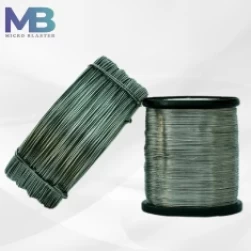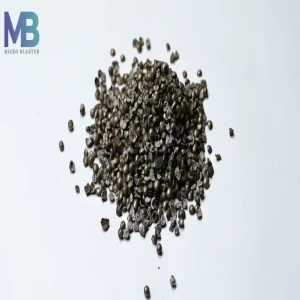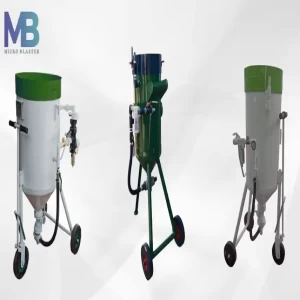Search

Metalizing Wire in South Africa
Metalizing wire is used in thermal spray gun to provide protecting coating layer on the substrate. Coating is provided to increase the life of substrate use in different applications and provide protection from rust, oxidation to the substrate used in sea and open environment areas.

Product Details:
The metalizing wire used in the thermal spray gun for the coating process. Coating provides over the substrate with a different method. Thermal spraying is done to increase the life of the substrate and prevent it from corrosion in even the hardest condition. The selection of metalizing wire in the thermal spray is based on the application of the substrate on which coating to be done. Metalizing wires are used in pure form as well as in alloy form also.
Types of Metalizing Wire in South Africa
1. Zinc Wire
2. Aluminum Wire
3. Molybdenum Wire
4. Babbitt Metalizing Wire
5. Nickel Wire
6. Tin Wire
7. Copper Wire
8. Bronze Wire
#1. Zinc wire
Zinc Wire Manufacturers in South Africa present in a variety of diameter and mostly used in small, voids and uncoated areas which are not readily accessible. Zinc wire coating has more resistance in hard water and less in soft water. Zinc wire is mostly used in pH range 6 to 12. Zinc coating has poor resistance in any water above 60 degrees Celsius. Zinc wires coating has poor resistance to almost all organic and inorganic acids. Zinc is mostly used as a primer on surfaces to form electrically conductive surfaces on glass and ceramics. Zinc wire also used in alloy form depends upon the application.
Applications
- Atmospheric and immersion corrosion protection on large steel or iron structures like bridges, roadway barriers, posts and poles, offshore structures, and marine structures.
- Corrosion protection on steel or iron substrate such as tanks and gas bottles.
#2. Aluminum Metalizing Wire
Aluminum Metalizing Wire is used in the coating process and drawn to a variety of diameter for use in a flame spray gun and arc spray gun . Aluminum Metalizing Wire has useful characteristics that include resistance to the atmosphere, chemical, and heat corrosion. Aluminum wires are good electrical conductors. Aluminum wire coating tends to form an oxide film that protects it from further attack.
Aluminum wire coatings used for cathodic corrosion protection in atmospheric and salt/freshwater immersion, with application areas such as oil refining equipment, chemical processing equipment, boat bottom interiors exposed to bilge water, and other similar types of exposure. It increases the life of the substrate by 15-50 years without maintenance.
Applications
- General industry: Cathodic corrosion protection coating on steel structures such as bridges and water towers in which the coating can be used alone and a very good bond and protective undercoat for organic materials.
- Aviation: to provide coatings on fiberglass panels for static dispersion and corrosion protection of outer casings.
- Automotive: coating on high-temperature corrosion protection on exhaust valves.
- Electronics: coating over an electrical conductance on components such as conductive areas on insulators, capacitor end caps, and varistors.
#3. Babbitt Metalizing Wire
Babbitt Metalizing wire is used for coating this material can be tin or lead, antimony, or copper. Babbitt Metalizing wire has a both hard and soft composition and they offer perfect low wear and friction resistance. Babbitt wire is used for the protection of the food tank and produces a very dense coating layer of 0.25 to 0.65 mm over the substrate. Babbitt Metalizing Wire melting point is 695 degrees Celsius. Babbitt wires coating metals are used in high duty and high-speed bearings. Babbitt wire is also used in alloy forms also to provide coating using a thermal spray gun.
Applications
- In high duty mechanical work
- Coating of high-speed mechanical bearing
- In food industries to protect the tank from rust
- In sliding components in which a dense coating layer is required
#4. Molybdenum Wire
Molybdenum wire is used for heavy-duty and high load vehicles because it has to withstand high mechanical loads. A thin layer of molybdenum wires are sprayed on vehicle and mostly used on sliding components in machine and vehicle too. Shift forks, synchronizer rings, piston rings, synchronizing assemblies, and other vehicle and machine components are coated and protected by molybdenum wire using thermal spray. Molybdenum wire also used in the form of alloy to provide protecting coating based on application.
Applications
- Automotive applications such as piston rings, synchronizer rings, repairs on the I.D. of transmission gear rings, and sliding parts of machine and vehicles.
- Provides coating that is compatible between mating surfaces, particularly for iron-based alloys.
#5. Nickel wire
Nickel wire is used for corrosion protection over the substrate surface. Nickel wires also provide very high corrosion resistance in the water, marine, and melts. Nickel wire coatings are more adhered to the substrate and very dense compared to other wire sprayed coatings. Nickel wire coating by Sand Blasting Hopper in South Africa can also be used in chemical application substrate and chloride cleaning solutions. In most application areas nickel used in form of alloy to provide a protecting layer over the substrate.
Applications
- Resistant coating for chemical processing equipment and chloride cleaning solutions.
- Resistance to alkaline environments Corrosion resistance in marine and aqueous used substrate.
- Provide resistance to sulfuric acid environments.
#6. Copper wire
Copper Wire is a corrosion-resistant material in a non-oxidizing environment; generally used to provide resistance to neutral atmospheric conditions and seawater environments. Copper wire has excellent electrical and thermal conductivity. Copper wires are used in the thermal spray process for restoration particularly on copper alloy substrate and in electric applications where a coating is needed with good conductivity.
Applications
- Restoration of worn non-ferrous components.
- The substrate that requires thermal management or electrical conductivity in the application.
- In Paper and printing industries to resist corrosive inks.
- Electrical contacts and ground connectors.
- Self-lubricating bearings.
- Friction components like alternator brushes etc.
- Applications where electrical conductance is required such as on carbon brushes, resistors binding wire in electric motors.
- Decorative coatings.
#7. Tin wire
Tin wire and its alloy wires are design for the application using In arc and flame spray gun. Tin wires are used for the protection of containers used in food processing/ storage and for the repair of glass-lined tanks.
Tin wire produces very dense coatings from 0.25 to 0.65 mm (0.01in-0.025in) thick that provides corrosion protection to the substrate from various solvents. It is nobler for metals and alloys than steel in the electrochemical series. Tin wires are used as a bond coat for high melting point materials like Monel (nickel-copper), nickel, bronze, and stainless steel.
Applications
- To provide coating in food processing tanks and Glass-lined tanks.
- In EMF/RFI shielding for electronic devices.
- Provides Corrosion resistance to solvents.
- Provides Solderable coatings for electrical connections.
- In High-speed, heavy-duty bearing surface.
#8. Bronze Metalizing Wire
The bronze wire used to provide a protective coating to the substrate. Aluminum bronze wire products Sprabronze AA and Sprabronze AB are used for wire feedstock thermal spray processes. Sprabronze S is a brass alloy wire and Sprbronze TM is a Tobin-type bronze. Bronze wires coatings are machinable and also use to achieve excellent finishing. Bronze Metalizing wire and its alloy offer corrosion resistance especially in neutral atmospheres and seawater environments. Bronze wire coatings are recommended for soft bearing applications and machine element repair.
Applications
- Hydraulic Press Sleeves.
- Piston Guides.
- Shifter Forks.
- Expansion Joints.
- Compressor Air Seals.
- Water Turbine Nozzles.
- Sprabronze AA, Sprabronze AB and Sprabronze TM: Hard, dense coatings for machine element restoration.
- For use on components such as pump impellers, armature bushings, motor bearings, air brake valves, valve plugs, and plungers.
- Sprabronze S: Machine element repair and Surfaces requiring improved sliding wear resistance.

